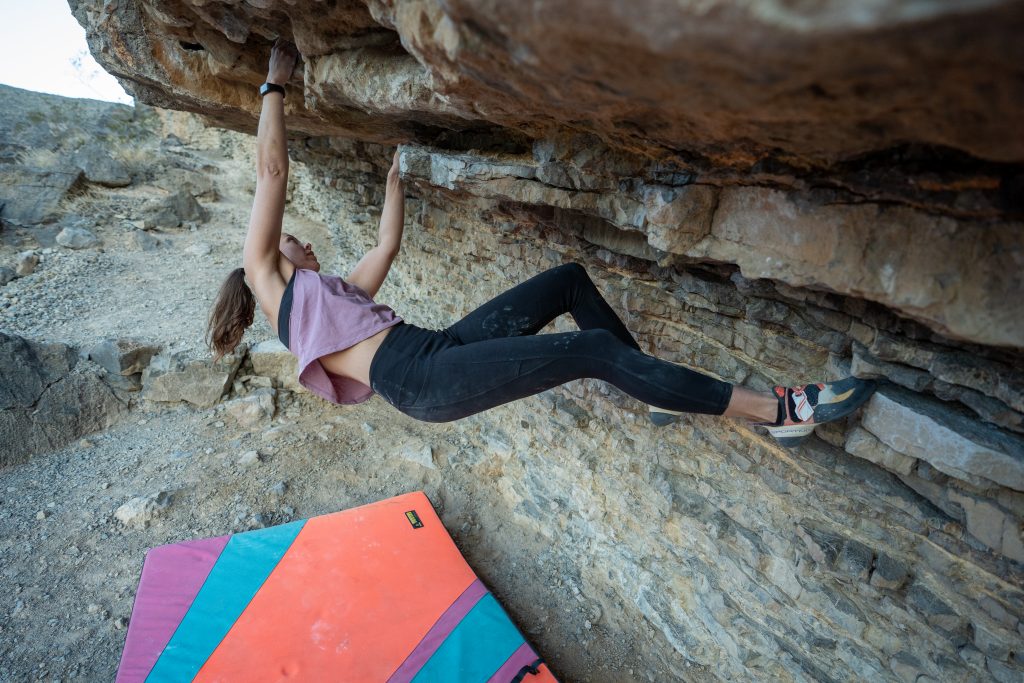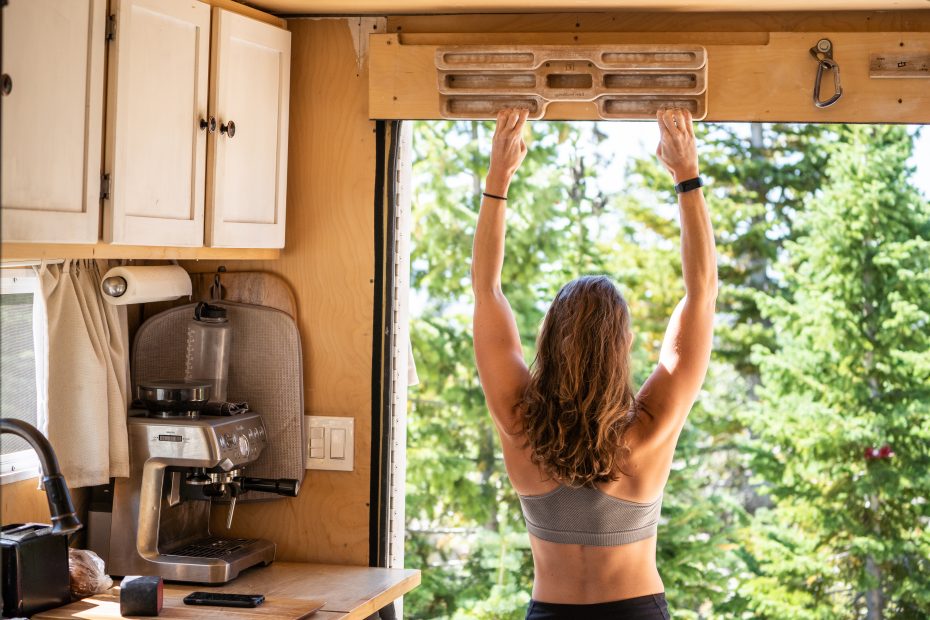I had an interesting conversation the other day with a new climbing partner. I was telling him how I got a lot better at climbing in a short amount of time (10a > 12b in a year). He said, “oh, but I bet you train just as hard as you climb”. And I was like… nope.
I pretty much stopped training entirely during this one-year period. I was on the road, with no access to a gym. And, obviously, I had great results in climbing terms. But I also, surprisingly, had great results in strength terms. Basically, I stopped doing core and I got visible abs. But more on that later.
Climbing is a skill sport
I’m going to caveat all of this with the fact that it’s my experience only and doesn’t apply to everybody. Everybody’s different – and that’s actually the fundamental takeaway of this post.
Climbing is super multi-faceted. Between the physical, the technical, and the mental, there are lots of different ingredients that matter. You’re probably naturally more gifted in one of these areas and less so in others – and you can use your strengths to your advantage. But that’s not the whole story.
Know your strengths, but work on your weaknesses
We all know climbers who are nasty strong (Alex Puccio, Magnus Midtbo), climbers who have super solid heads (Nina Williams, Alex Honnold), and climbers who are very technically good (Hazel Findlay, Adam Ondra). But having only one of the three elements is not very helpful: these climbers lean into the thing that they’re naturally good at while working on the things they’re not as good at.
Magnus Midtbo is insanely strong, and he loves to train. But he’s also very technically good. Nina Williams can boulder highballs all day – but not without strong fingers. Adam Ondra is a master of technique, but he trains A LOT and is totally cool skipping multiple bolts. See what I’m saying? The thing you’re good at will help you be great, but you can’t skip the other parts.

So why am I talking about training?
Training is all the rage. But it might not the most useful thing you can do for your climbing. The narrative is this: I want to get better at climbing > I need to get stronger > I should hangboard / train pull-ups / do barbell lifts / work on my core. But this is fundamentally flawed. It only makes sense if strength is your weakness.
If strength is already your strength, getting stronger probably won’t help you very much. That was me. I could do ten pull-ups but I couldn’t climb 5.11a. I needed to get better, not stronger. And I worked on getting better by climbing every day.
It doesn’t matter how strong you are if you can’t apply it to the wall
My strength was far greater than I needed it to be to climb 5.11 – or even 5.12. So when I spent less time training and more climbing, I ran through the grades super fast. I sent my first 11b in March 2021. I sent my first 12a in April 2021 – six weeks later (and I skipped 11c and 11d). And all I did was train less, climb more.
But if your strength is technical or mental, training might be exactly what you need. What I’m trying to say is that getting better at climbing isn’t one-size-fits-all. The key is to identify what you’re worst at and focus on that. If you don’t do that, it’s kind of like studying for an exam by going over only the things you already understand: it makes you feel good, but it’s not actually very helpful.
And if you learn how to actually apply your strength to the wall, you’ll probably get stronger just by climbing. I did. After a year without training, I could do 13 pull-ups. My one-rep max is with 50 pounds added. I have a four-pack (maybe next year, six-pack). I was AMAZED by this. I thought, if anything, I would have gotten weaker. Nope! The lesson here is this: don’t be afraid to stop what you’re doing in order do to something else that might better serve your climbing.
Of course, there will come a time when I need to train again. But right now, my technical skill is my weakness. Once I turn that into a strength, I’ll probably start training again. I’m constantly assessing my strengths and weaknesses. And if you do that, chances are you won’t plateau. It’s a win-win-win.
Photo credit: Ryman Wiemann
